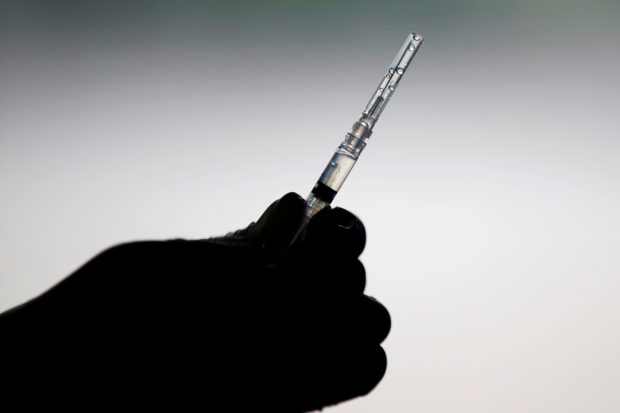
FILE PHOTO: A healthcare worker prepares a dose of China’s Sinovac Biotech vaccine for the coronavirus disease in Jakarta, Indonesia, March 5, 2021. REUTERS/Willy Kurniawan
SANTIAGO — Sinovac’s COVID-19 vaccine was 58.5% effective in preventing symptomatic illness among millions of Chileans who received it between February and July, the Chilean health authorities said on Tuesday, while Pfizer’s COVID-19 shot was 87.7% effective and AstraZeneca’s was 68.7% effective.
The data came in the latest “real world” data published by the Chilean authorities into the effectiveness among its population of a raft of COVID-19 vaccines.
Chile began one of the world’s fastest inoculation campaigns against COVID-19 in December, having now fully vaccinated more than 60% of its population, predominantly with Sinovac’s CoronaVac.
That vaccine was 86% effective in preventing hospitalization, 89.7% effective in preventing admission to intensive care units and 86% effective in preventing deaths within the population between February and July, health official Dr Rafael Araos said in a press conference on Tuesday.
In April, the same study found that CoronaVac was 67% effective in preventing symptomatic illness, 85% effective in preventing hospitalizations and 80% effective in preventing deaths, suggesting its capacity to prevent the more serious impacts of the virus has strengthened, while its capacity to stop symptomatic illness diminished.
Araos said a reduction in protection from vaccines was inevitable over time, particularly with the arrival and growing prevalence of more virulent strains such as the Delta variant.
“If Delta becomes more prevalent and the vaccine has a weaker response, we could observe a faster fall (in effectiveness),” he said, adding his voice to calls for a third, booster dose to be issued.
The government also published data on the effectiveness of other vaccines administered in Chile, made by Pfizer BioNTech and AstraZeneca.
Pfizer’s vaccine was 87.7% effective in preventing symptomatic COVID-19 in the same period, 98% effective in preventing intensive care admission and 100% effective in preventing death, Araos said.
AstraZeneca’s was 68.7% effective in preventing symptomatic COVID-19 in the same period, 98% effective in preventing intensive care admissions and 100% effective in preventing death, Araos said.
Chile’s study examined the vaccines’ effectiveness among different cohorts of people who either received two doses of the specified vaccine, partial doses of the vaccine or no vaccine at all.
The CoronaVac part of the study examined a group of 8.6 million people, the Pfizer BioNTech part studied a group of 4.5 million people and the AstraZeneca part looked at a group of 2.3 million people.